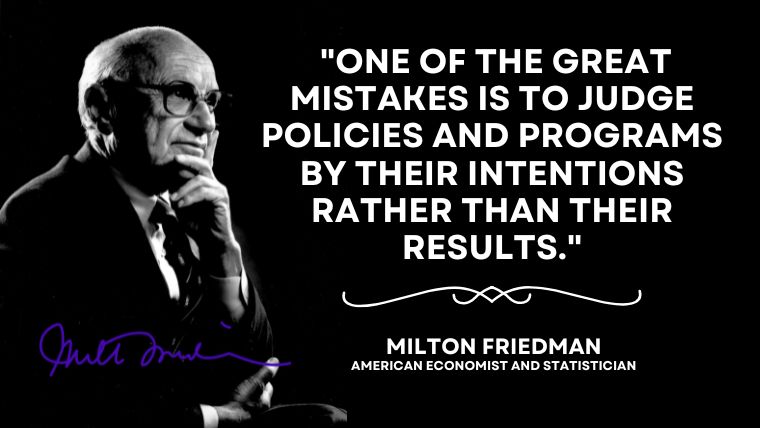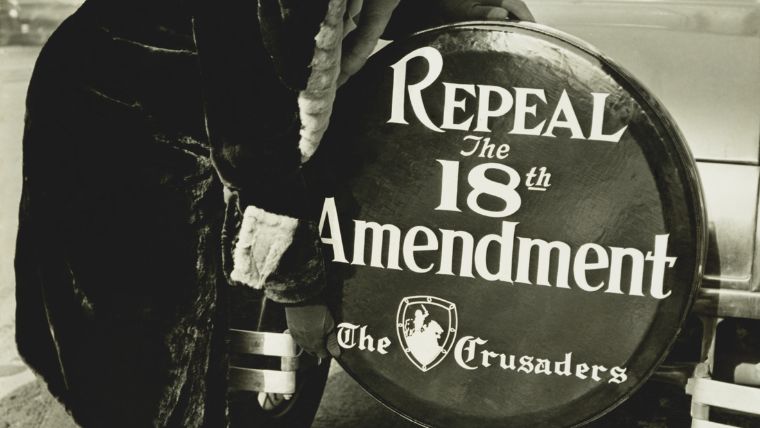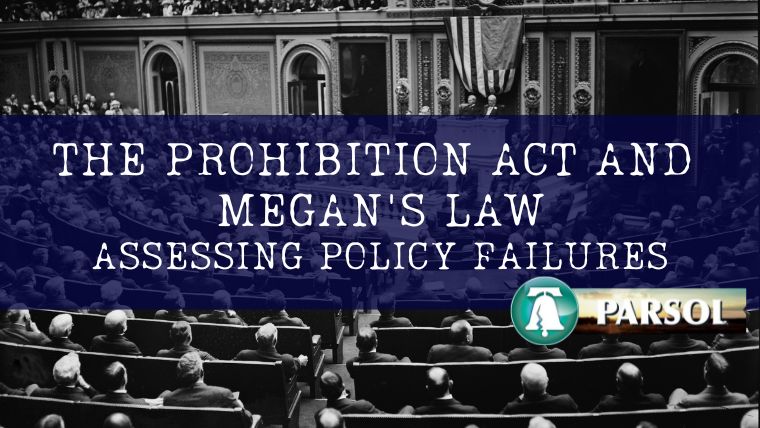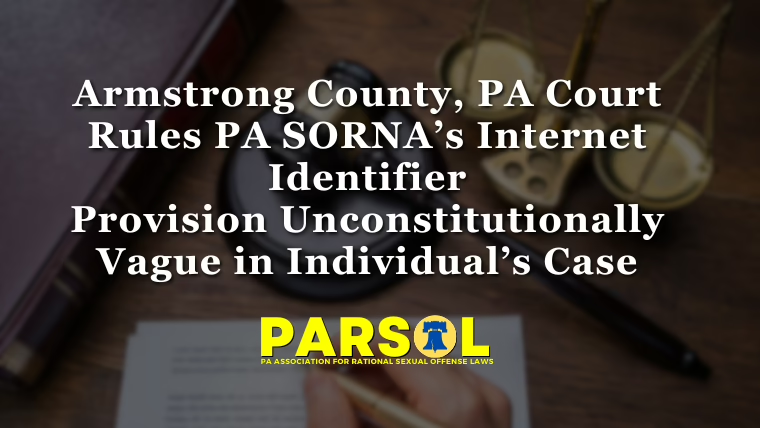Milton Friedman’s insightful quote, “One of the great mistakes is to judge policies and programs by their intentions rather than their results,” provides a critical lens through which we can examine the failures of policies such as the Prohibition Act of 1920 and Megan’s Law. To remedy the mistake of evaluating policies solely based on intentions, a shift in focus is necessary – one that emphasizes the examination of actual outcomes and consequences. Repealing or amending misguided policies is a crucial step in this process.

The Prohibition Act
The Prohibition Act, enacted with the 18th Amendment, serves as a poignant historical example. While its intentions were rooted in the desire to address societal issues related to alcohol consumption, the unintended consequences painted a different picture. The rise of speakeasies, bootlegging, and organized crime showcased the failure of the policy to achieve its intended goal of reducing alcohol consumption. Recognizing these outcomes, society took corrective action through the repeal of the Prohibition Act in 1933 with the 21st Amendment. This repeal underscored the importance of learning from policy failures, acknowledging the real-world impact, and adjusting strategies accordingly.
Megan’s Law
Similarly, Megan’s Law, enacted in 1996 and later replaced with the Adam Walsh Act in 2006, aims to protect communities by making information about Persons Forced to Register (PFRs) publicly available. However, the unintended consequences and criticisms associated with the law necessitate carefully examining its effectiveness. Judging the law solely on its noble intentions would be a mistake. Instead, society must critically evaluate whether the dissemination of information about “sex offenders” truly enhances public safety or if it inadvertently contributes to vigilantism and undermines the rehabilitation of individuals on the registry.
Collateral Consequences
Being jobless or homeless is the reality for many on the registry. As a result, we hear about persons forced to register under Pennsylvania Megan’s Law can be driven to commit additional non-sexual crimes out of desperation for survival; thereby making successful rehabilitation nearly impossible. Privacy concerns regarding Megan’s Law highlight the need for a balanced approach that addresses public safety without compromising the rights and dignity of those listed on the registry and their family. Learning from the flaws of the policy and acknowledging its limited efficacy in preventing sexual offenses are crucial steps toward effective policymaking. Reevaluation and potential reform become imperative in light of these real-world consequences.

The comparison of the Prohibition Act and Megan’s Law illustrates the importance of moving beyond the intentions of policies to scrutinize their actual impact. Recognizing and rectifying the failures of policies through repeal or reform is a vital aspect of the policymaking process. As societies grapple with complex issues, continuous evaluation, learning from mistakes, and adapting strategies based on real-world outcomes are essential for developing effective and equitable policies.
Image of Milton Friedman is a public domain photo. Other photos are licensed via CanvaPro.




![stuckIn1995_rally_header - PARSOL - Pennsylvania Assoc for Rational Sex Offense Laws (PA Megan's Law Resources) PARSOL Board Chair Josiah Krammes speaks at the PA Capitol Rotunda flanked by State Reps. Emily Kinkead and Tim Briggs (28 Oct 2025) [John Dawe/PARSOL]](https://parsol.org/wp-content/uploads/2025/10/stuckIn1995_rally_header.avif)